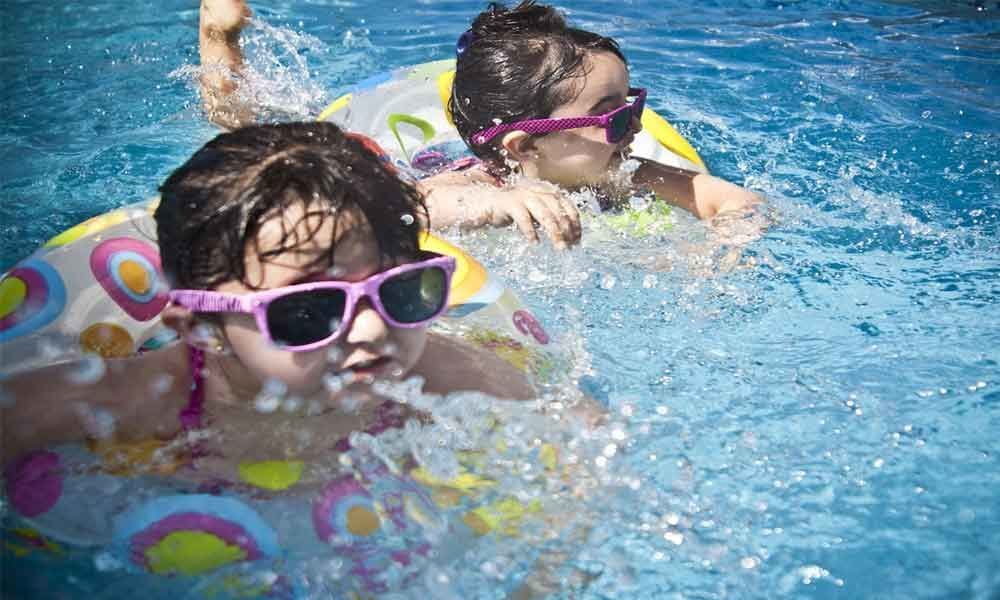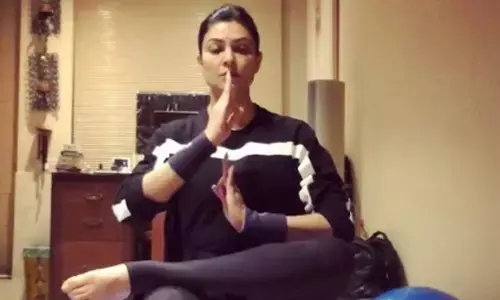Protect children's eyes when in water

Swimming without adequate eye protection can result in dry eyes.
Taking a dip in the swimming pool in summer heat is both a matter of enjoyment as well as a source of respite from the heat.
Swimming as a recreational activity can be fun but there are some dos and don'ts which can make it safe too.
Do's
Wear goggles while swimming- Swimming pools are usually treated with chlorine to reduce the chances of infection.
This chlorine has a tendency to wash away the protective film of tear from our eyes resulting in irritation, redness and watering of eyes.
Additionally, chlorine by itself may be a source of irritation to the eyes. Moreover, despite chlorination, some bacteria may still persist in the pool which may harm the eyes by causing conjunctivitis.
So, it is advisable that kids wear goggles which cover the eyes completely to physically protect the eyes in the pool.
Wash your eyes – Kids are advised to wash the eyes properly after getting out of the pool.
This is to ensure that any chemical adherent to the eye will be washed out. Additionally, it also helps in soothing the eyes which may be irritated because of the loss of the tear film.
Use sun glasses in pool side – A good quality sun glasses which protect from both UV A and UV B rays and cover the eyes from all the sides is advisable while relaxing in the pool side. Using polarised lenses also reduces the glare.
Use lubricating eye drops – Swimming without adequate eye protection can result in dry eyes.
This results in redness of eyes, watering and foreign body sensation. It is advisable to use lubricating eyes drops to prevent such symptoms in children.
However, if symptoms do occur, it is advisable to visit the eye specialist for proper management.
Stay hydrated – It is advisable to drink adequate amount of fluids to counter act the dehydrating effect of summer as well as to reduce the chances of dry eyes in children who swim regularly.
Fluids can include plain simple water, coconut water, butter milk and fruit juices. Carbonated drinks are best avoided.
Visit your doctor- In case of any symptoms, (redness, watering, irritation, foreign body sensation, difficulty in seeing light) it is advisable to visit your eyes specialist
Don'ts
Avoid contact lens – Contact lens must be removed, and a glass of suitable power be used while swimming. Swimming with contact lens damages the contact lens.
It also causes infective organisms to adhere to the lens or to the cornea (black part of the eye) which can result in a severe irritation and even a serious infection of the cornea called as infective keratitis.
Adhering to the above set of instructions will make swimming both safe and enjoyable. So, what are you kids waiting for? Go ahead and take that plunge into the pool!
Dr Tandava Krishnan– The writer is a senior consultant, Maxivision super speciality eye hospital










